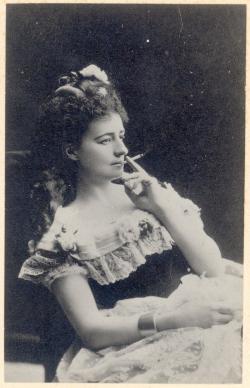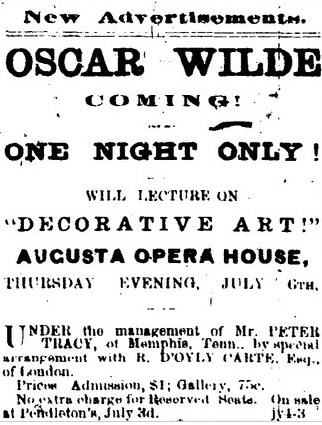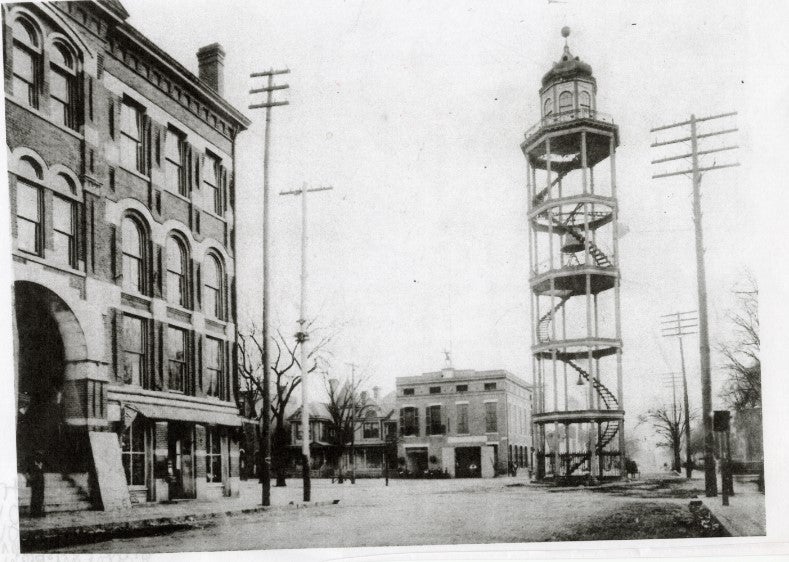Long before mult-cineplexes, Augusta’s Grand Opera House was the 19th and early 20th Century hub for entertainment with many of the stars of the opera, theater and vaudeville circuits gracing the stage.
The Grand Opera House, located at the corner of Greene and Eighth streets opened to much fanfare in 1869. Photos of the interior no longer exist, but it was said to live up to its name for grandeur.
In those pre-electricity days, the stage was lit by holding a flame next to a cylinder of quicklime, hence the term ‘living in the limelight.’ Big Steve, the town’s fire alarm sat, appropriately, across the street as theaters were constant fire hazards.
One of the acts to perform in 1878 was Buffalo Bill Cody and his Wild Indians. Part of the show was Cody pulling out the scalp of Chief Yellow Hand, who he allegedly killed in combat, and holding the gruesome relic up to the crowd.
Cody also played a skit where he played the hero saving his sister from the wicked Mormon Brigham Young.

Helena Modjeska was an international star when she came to town in 1879, according to Ed Cashin in his book, The Story of Augusta. Modjeska performed in “Camille” on-stage at the Opera House. However, Cashin notes that the crowds were just as awed by her palatial Pullman Car sitting at the Central Train Depot as they were with her performance.
Modjeska’s visit was so memorable that 30 years later, Augusta’s new theater, built in 1911, was named in her honor.
Oscar Wilde’s performance in Augusta in 1882 was memorable as well, for all the wrong reasons.
According to Cashin, Wilde treated the performance as more of a lecture, pacing about like a college professor, telling the crowd that children should be allowed to handle fine china so they can appreciate beauty.
Newspapers at the time poked fun at Wilde’s wardrobe, which was a black velvet suit with a full dress coat, lace cuffs and a large cravat.
The Augusta Chronicle and Constitution panned the performance, stating “the lecture was informative and interesting, but much interest was destroyed by the mannerisms of the lecturer.”
So much for the wonderful wit of Wilde!

The Grand Opera house also ushered in motion pictures as more theaters such as Modjeska, Imperial and Rialto opened up on Broad Street. Downtown Augusta would be inundated with crowds checking out the marquees to find which Friday or Saturday showing they would like to see.
Sadly, the Opera House would not be around for the advent of “talkies.”
In 1922, the Opera House caught fire and burned, killing the manager and his wife, James and Lula Tant. The cause of the fire was determined to be arson, but no culprit was ever arrested.
…And that is something you may not have known.
Scott Hudson is the Senior Investigative Reporter and Editorial Page Editor for The Augusta Press. Reach him at scott@theaugustapress.com










